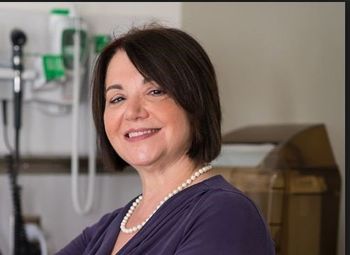
Survivorship Care Plans, When Used, Promote Better, More Coordinated Care
Providing survivorship care plans to primary care physicians could help to enhance care coordination and boost physician confidence; however, a recent study indicated that only a small number of primary care physicians are receiving these plans from oncologists.
Providing survivorship care plans to primary care physicians could help to enhance care coordination and boost physician confidence; however, a recent study indicated that only a small number of primary care physicians are receiving these plans from oncologists.
“Cancer survivors can experience a number of concerns after cancer treatment is over, including physical and psychological challenges, which often go untreated,” said study author Laura P. Forsythe, PhD, MPH, of the Patient-Centered Outcomes Research Institute in Washington, DC. “Problems with the current approach to treating survivors, such as inadequate training and poor coordination among health care providers, can contribute to survivors’ ongoing challenges, and a better understanding of how to improve survivorship care can hopefully lead to better health for cancer survivors.”
For the study, a nationally representative sample of 1,130 medical oncologists and 1,020 primary care physicians were surveyed about follow-up care for breast cancer and colon cancer survivors. The results were
Forsythe and colleagues found that 49.1% of oncologists reported always or almost always including a treatment summary. However, only 20.2% of oncologists always or almost always provided a full survivorship care plan, defined as a treatment summary plus a follow-up plan.
Results indicated that oncologists who defined themselves as Asian race/ethnicity, had more training in long-term effects, or those with use of partial or full electronic medical records were more likely to always or almost always provide treatment summaries (P < .05). In contrast, oncologists who were part of a practice of six or more physicians were significantly less likely to provide a survivorship care plan.
About one-third of primary care physicians reported always or almost always receiving treatment summaries and 13.4% reported always or almost always receiving full survivorship care plans.
“Primary care physicians’ receipt of comprehensive plans for their patients’ future follow-up care was associated with their having clearer understanding of their responsibilities for providing care to cancer survivors, better communication with their patients’ other providers, and greater confidence about treating their patients’ needs after cancer,” Forsythe said. “These benefits were not seen when primary care physicians received treatment summaries alone.”
Forsythe said that a variety of factors will need to be dealt with to ensure care planning occurs.
Among them are limited training of clinicians in the late- and long-term effects of cancer, inadequate support for communication among clinicians and for sharing of medical record data, lack of financial reimbursement of clinicians for the time they spend on care planning, and limited evidence about the usefulness of survivorship care plans for improving survivors’ care.
Newsletter
Stay up to date on recent advances in the multidisciplinary approach to cancer.

























































































